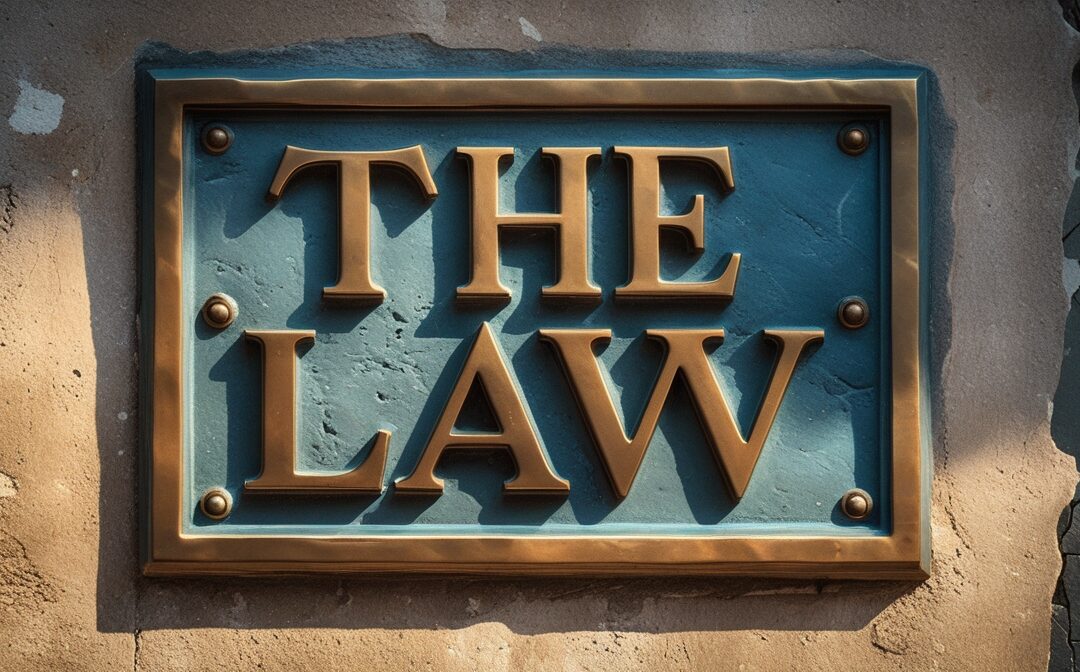“There is only one lawgiver and judge, He who is able to save and to destroy,” (James 4:12)
No person on earth has authority to dictate to another’s conscience the morality of life. This would be to assume a position belonging to none other than the Supreme Lord and Legislator of creation. “There is one Lawgiver, who is able to save and to destroy,” (James 4:12). Such a power was prohibited by Jesus Christ among His followers, “The kings of the Gentiles exercise lordship over them, but ye shall not be so,” (Luke 22:25). Such a practice was also disclaimed by the inspired apostles, “Not that we have dominion over your faith,” Paul said, “but are helpers of your joy,” (2 Cor. 1:24). Christians are required to personally examine every doctrine against the unerring rule of the Word of God (Isa 8:20; 1 John 4:1). For there is only one Lawgiver, which is God, and He has manifested His law in His Word. As God’s children, we are responsible to uphold, believe, and behave all God’s instructions for living found in Scripture. To do anything less is disobedience. Robert Shaw rightly said, “Whatever is not done in faith, nor accompanied with a personal persuasion of the obligation or lawfulness of it in the sight of God, is pronounced to be sin (Rom. 14:23).” It follows, then, that when those in positions of authority over us require behavior that is contrary to the Word of God, God’s people are not obligated to comply. The obedience which Scriptures commands us to render to parents, or husbands, or public rulers is therefore limited. The biblical precept, “Children, obey your parents in all things,” is a command for children to obey their parents as it relates to their rightful parental authority. The case is equally plain regarding the command, “Wives submit to your own husbands.” And obedience to political leaders is also limited to their rightful parameters. The precept, “Let every soul be subject to the higher powers,” must be understood as a command to obey rulers only in the exercise of their rightful authority, and in all things lawful. These same inspired authors of Scripture openly disobeyed their political rulers whenever their commands were contrary to higher obligations. “We ought to obey God rather than men,” (Acts 5:29). This is the principle which they taught and on which they acted. When the apostles were charged by the Jewish Council not to speak in the Name of Jesus, their unhesitating answer was, “Whether it is right in the sight of God to listen to you rather than to God, you must judge, for we cannot but speak of what we have seen and heard,” (Acts 4:19-20). No command to do anything morally wrong can be binding on the Christian conscience since God is the Supreme Lawgiver. Above all others, He is the one we are to adore and obey.- Lord, Your Word alone has authority to either excuse or accuse me of sin. “There is one Lawgiver, who is able to save and to destroy,” (James 4:12). “The Lord is our judge, The Lord is our Lawgiver, The Lord is our King; He will save us,” (Isa. 33:22). Help me look to Your Word alone in all matter of life and godliness. There I find the Savior instructing me in my duties before You.
- You alone, Lord, possess divine authority over my conscience, which moves me to reverence and fear (Mal. 1:6; Isa. 8:13). This is not a fear that causes me to run from You as I would from an enemy, but a fear by which I revere You as my Father (Heb. 12:28), and by which I take heed in the course of my life that I not offend or dishonor You by some sin (Gen. 39:9).
- If I sin, Lord, I know You are forgiving. But that does not give me an excuse to keep sinning. When I sin, I disregard Your authority as well as Your power (Jer. 44:16-17). I exalt myself over You (Jer. 13:15), I break Your Law (Jer. 5:5; Ps. 2:3), and I provoke You, the very One I desire to obey. You are the Supreme Lawgiver. I want to adore You, not sin against You. Help me honor You, Father, adore Jesus Christ, and live in the power of Your Holy Spirit in a manner worthy of Your character as Supreme Lawgiver.


